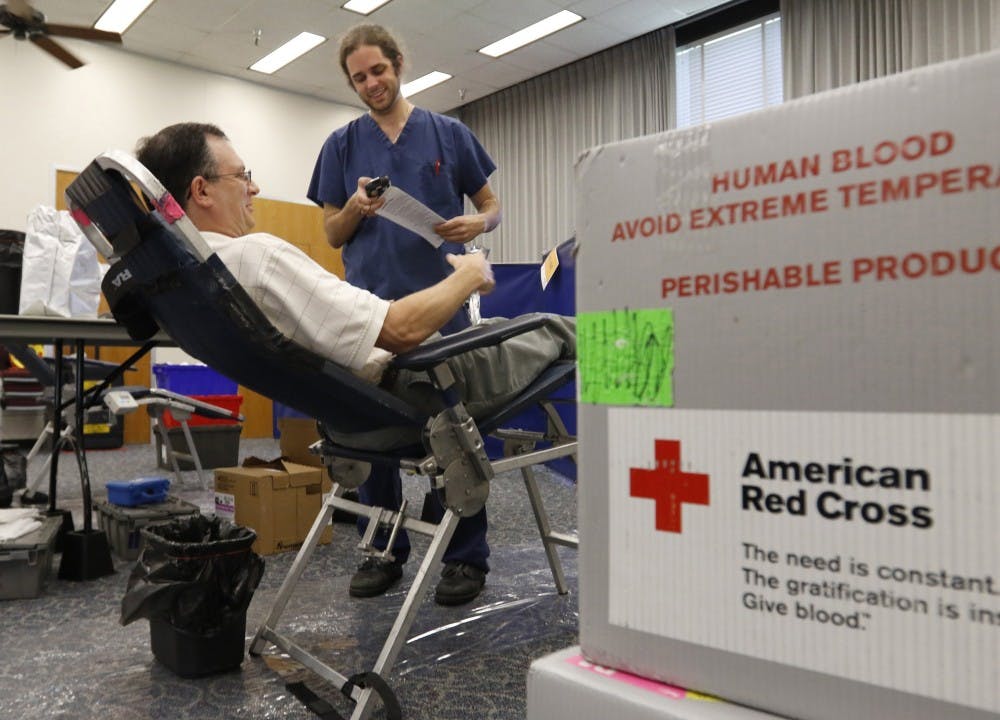I wanted to wait until the 2017 Carolina-Clemson blood drive was over before discussing this because giving blood is justifiable. However, the American Red Cross is a very shady organization that the university needs to stop supporting.
I know — you’re probably wondering what I can possibly find wrong with the Red Cross. It’s one of the few things that both Donald Trump and President Obama can agree are good. But over the last decade, it has repeatedly shown a pattern that at this point can only be called predatory behavior.
In 2006, the Red Cross was criticized for having inadequate volunteers, poor administration and a lack of necessary supplies (such as solid meals, water and batteries) on the ground during its 2005 response to Hurricane Katrina. That should have been a chance for the organization to get its act together, but it has repeatedly dropped the ball since then. After the earthquake in Haiti, the Red Cross spent $170 million to build six permanent homes. The gap between the promises and the actual work done was so bad that the organization was afraid NPR and ProPublica showing Haitians documents that the Red Cross itself had published would incite violence. When superstorm Sandy hit New York and New Jersey, the organization allowed sex offenders to play with kids in their shelters and was widely accused of putting publicity stunts ahead of actual relief work.
Five years after that, when natural disasters struck California, Puerto Rico, Florida, Texas and the U.S. Virgin Islands in rapid succession, the Red Cross had apparently not learned any lessons at all. During the aftermath of Hurricane Harvey, the first of those disasters, the Red Cross was fine putting its name on shelters it had hardly assisted. When asked about it by local officials, it claimed it had no resources to spare, even though it had raised over $400 million off of the storm.
At this point, after repeated instances of the same failures, it’s clear that the Red Cross has no intention of ever providing adequate disaster relief. But it also has every intention of raising hundreds of millions of dollars through national tragedies and paying executives millions of dollars for their roles in keeping the scam going.
I appreciate the charitable spirit of students at both this university and our rivals at Clemson, but if we continue to tie the idea of “charity” to an organization that scams people at their lowest moment we are doing more harm than good. The university needs to find a new sponsor for the event or change to a different sort of drive.
We’re better than them. We need to show it.

